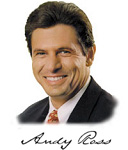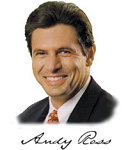
The 1st Annual HWSA Furry Friends Calendar is Unleashed
If you think herding cats is hard, try corralling 54 frisky canine models during a photo shoot for the “Dogs of Wooster Square” calendar. They convened last summer – in all breeds, shapes, and sizes – to audition in Wooster Square for photographer Paul Duda of Duda Photography Studio of New Haven. Their goal was to be included in the first annual calendar produced by the Historic Wooster Square Association (HWSA).
The canine calendar project is spearheaded by HWSA Board member and four-year New Haven resident Bonnie Rosenberg – with help from Rosemarie Conforti and Peter Webster, who serve on the HWSA board as fellow Wooster Square neighbors. Their goal is to help raise awareness of HWSA (an organization best known for its annual Cherry Blossom Festival held each spring in Wooster Square Park during the peak blooming season) and to involve other area residents in ongoing preservation efforts.
“The idea of having a dog calendar,” explains Rosenberg, was to further anchor ourselves to the community while having fun and raising money for this worthy cause.” She selected a fundraiser concept that is, indeed, near and dear to residents of this historic district – where many devoted owners trail along behind their furry masters and friends on daily excursions. As Rosenberg notes, “Wooster Square is dog haven.”
Thinking about producing a high quality, full-color calendar was the easy part. But executing it took months of planning and searching for the right team of vendors willing to contribute their time and talent – either at a discount or for free. Nearly half a year later, says Rosenberg. “I never could have imagined how much detail goes into a project like this. But we were blessed with first rate, totally committed professional support.”
The calendars will be sold in various locations through out the city including City Seed Farmer’s Market in Wooster Square, Fuel coffee shop, Book Trader Café, and Village Gifts in Westville. Calendars may also be purchased from the HWSA Web site. The cost is $15 and all proceeds will be used to further the preservation efforts of the Historic Wooster Square Association.
The members and Board of Directors of the Historic Wooster Square Association offer a huge thank you to all of contributing vendors and sponsors. Those who made this year’s calendar possible include Paul Duda Studio, Bethany Morgio Academy, Printwear, and GHP Printers
The year’s HWSA monthly sponsors are:
January:
New Haven Central Hospital for Veterinary Medicine
New Haven, CT
February:
VCA Foxon Animal Hospital
East Haven
March:
Hot Diggity Dog Grooming Parlor
Hamden
April:
Beauty in the Beast
Cheshire
Professional Dog and Cat Grooming
May:
Wooster Square Pet Service
Dog Walking & Cat Sitting
Jody Abalan, New Haven
203-752-9589
June:
Sweetie Pie’ “Best Buddy Biscuits”
By Sweet Pie Catering
Hamden
July:
Calm Pets Happy Pets
April Richards
August:
Wash and Wag Pet Grooming
New Haven
September:
Academy Printwear
Hamden
October:
Walter C. Bansley IV
New Haven
November:
Cassidy’s Pampered Paws Pet Boutique
New Haven
December:
Iovanne Funeral Home
Wooster Square
New Haven


 Bill Rossi: A Pearl of Wisdom
Bill Rossi: A Pearl of Wisdom

 Innovative Tent City Campaign Helps Extend Urgent Shelter to those in Need
Innovative Tent City Campaign Helps Extend Urgent Shelter to those in Need